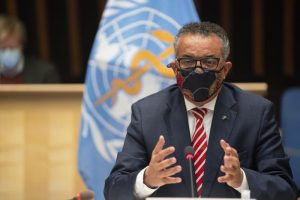The Supreme Court of the Philippines has recently accepted the amicus curiae motion filed by the International Bar Association’s Human Rights Institute(IBAHRI) in July 2023 in the case of People of the Philippines v Maria Ressa and Reynaldo Santos Jr. The IBAHRI welcomed the granting of the amicus curiae – friend of the court; an individual or organisation that is not a party to a legal case, but that is permitted to assist a court by offering information, expertise, or insight that has a bearing on the issues in the case.
In June 2020, Maria Ressa – Nobel Peace Prize Laureate of 2021 – was convicted of cyber libel under Republic Act No 10175 by the Regional Trial Court of Manila, a decision which was upheld by the Philippines Court of Appeal in July 2022. Later that year, Ms Ressa filed an appeal before the Supreme Court of the Philippines (the ‘Supreme Court’) and awaits an appeal judgment.
The IBAHRI has been closely following this important case as it has serious implications for media freedom nationally and internationally, concerning international standards and the balance between defamation law and freedom of expression. As a result, in July 2023, the IBAHRI submitted a motion to the Supreme Court of the Philippines for IBAHRI to be considered as amicus curiae, and requested permission to submit a brief containing Independent Expert Reports, prepared by three duly appointed jurists, to assist in the determination of the case of Ms Ressa.
In April 2024, the motion was accepted by the Supreme Court, permitting the IBAHRI to act as amicus curiae and granting the submission of an amicus brief. The IBAHRI has been assisted in filing the brief by local counsel in the Philippines through IBAHRI Council Member and winner of the IBA’s Human Rights Award in 2022, Neri Colmenares, and fellow lawyer of the National Union of People’s Lawyers of the Philippines, Cris Yambot.
IBAHRI Director, Baroness Helena Kennedy of the Shaws LT KC, stated: ‘The role of the media is currently under threat globally, and the Supreme Court’s decision in Maria Ressa’s case will result in serious ramifications for free expression and media freedom. These are the essential pillars of any democracy, and the IBAHRI has worked tirelessly to challenge the law where it restricts the vital work of journalists unduly. The careful balancing act in the law regarding freedom of expression and defamation is still contested in many courts worldwide, and so underscores the need for our legal intervention. We hope the expert analysis provided in this amicus curiae brief will assist the Court in its deliberations and in making the correct final determination.’
In filing its amicus brief, the IBAHRI commissioned three Independent Expert Reports addressing the compatibility of the criminal charges brought against Ms Ressa with distinct areas of law to which the Supreme Court decision relates: the United States First Amendment principles and case law, international law, and Filipino law. The expert conclusions ultimately highlighted an incompatibility between these areas of the law and the Court of Appeal’s decision to uphold Ms Ressa’s conviction for cyber libel.
IBAHRI Co-Chair and Past Secretary General of the Swedish Bar Association, Anne Ramberg Dr Jur hc, stated: ‘The IBAHRI was compelled to file an amicus curiae motion in Ms Ressa’s case given its profound legal consequences for media freedoms both in the Philippines and worldwide. In commissioning the Independent Expert Reports, the IBAHRI has sought to offer comprehensive expert opinions on the critical areas of the law which directly affect Ms Ressa’s case. We are hopeful that the Supreme Court will seriously consider the conclusions drawn by these three distinguished jurists.’
The first Independent Expert Report was authored by United States libel law expert Theodore J Boutrous, of Gibson, Dunn & Crutcher LLP, offering a comprehensive assessment of how the criminal charges levied against Ms Ressa – who is a dual Filipino and American citizen – are dramatically inconsistent with the First Amendment to the United States Constitution, which bears substantial similarities to Article III, Section 4 of the Philippine Constitution. In light of these similarities, the Supreme Court of the Philippines has on many occasions referred to US case law to address unprecedented legal questions. This highlights the need for an expert opinion on United States libel law in the present case.
Elizabeth Wilmshurst CMG KC, Honorary Kings’ Counsel and distinguished expert in international law, assessed the incompatibility of the Court of Appeals’ judgement and the first instance Regional Trial Court judgement with international law. Ms Ressa’s criminal conviction for libel imposes a disproportionate burden on freedom of expression, and one which is in opposition to the multiple articles on the subject in the International Covenant on Civil and Political Rights (ICCPR) and other relevant international instruments.
The final Independent Expert Report was authored by Justice Adolfo Azcuna, a former Associate Justice in the Supreme Court of the Philippines and commissioner of the International Commission of Jurists. Justice Azcuna assessed the compatibility of the Court of Appeals’ judgement, and the first instance Regional Trial Court judgement with Filipino law, ultimately concluding that the Republic Act No 10175 under which Ms Ressa was charged had been misapplied.
IBAHRI Co-Chair and former President of the Commonwealth Lawyers Association, Mark Stephens CBE stated: ‘Ms Ressa’s latest appeal against her criminal conviction culminates in a series of legal challenges to her work. Following her acquittal for alleged crimes of ‘foreign ownership’ and tax charges, the present case before the Supreme Court is one of the remaining charges looming over her which, if upheld by the Court, could lead to her being imprisoned for a period of over six and a half years. The IBAHRI has observed the increasing legal encroachment on freedoms of journalists in the Philippines and globally, and through this submission seeks to assist the Court in its determinations of the rights of journalists to carry out their work free from undue restriction’.
ENDS
Contact: IBAHRI@int-bar.org
Notes to the Editor
- Click here to download a PDF of the amicus curiae.
- Related material:
- The International Bar Association’s Human Rights Institute (IBAHRI), established in 1995 under Founding Honorary President Nelson Mandela, is an autonomous and financially independent entity, working to promote, protect and enforce human rights under a just rule of law, and to preserve the independence of the judiciary and the legal profession worldwide.
- Find the IBAHRI on social media here:
- The International Bar Association (IBA), the global voice of the legal profession, is the foremost organisation for international legal practitioners, bar associations and law societies. Established in 1947, shortly after the creation of the United Nations, it was born out of the conviction that an organisation made up of the world’s bar associations could contribute to global stability and peace through the administration of justice.
- Find the IBA on social media here:
Website page link for this news release:
Short link: www.tinyurl.com/45humztd
Full link: www.ibanet.org/Supreme-Court-of-Philippines-appoints-IBAHRI-as-Amicus-Curiae-in-Maria-Ressas-cyber-libel-case




